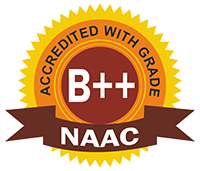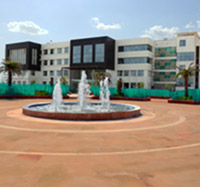Latest News:
- ABOUT RNBGU
- ADMISSIONS
- Schools
- ACADEMICS
- Strategic Plan and Deployment Documents
- Faculties and Schools
- Curriculum Design and Policy
- Syllabus
- Programme Outcomes
- Course Outcomes
- Examination and Evaluation
- Academic Calendar 2024-2025
- Board of Studies
- Academic Council
- Faculty Members
- Policies
- Committees
- ICT-Enabled Facilities
- Sanctioned Teaching Post
- MOOC Courses
- Doctoral Faculty Detail
- Indian Knowledge System (IKS)
- Gender Cell
- Teaching Learning Pedagogy
- NEP 2020 Implementation
- Teaching Outcome (Attainment)
- PROGRAMS
- Under Graduate Programs
- B.A. (Bachelor of Arts)
- B.Com. - 2025-26
- B.Com . (Hons) - 2025-26
- BBA (Marketing) - 2025-26
- BBA (Finance) - 2025-26
- BBA (Digital & Social Media Marketing) - 2025-26
- BBA (Human Resource Management) - 2025-26
- BBA (Foreign Trade) - 2025-26
- BBA (Bachelor of Business Administration) - 2025-26
- B.Tech. (Computer Science And Engineering)
- B.Tech. (CSE) Spl In Cyber Security & Forensics
- B.Tech. (CSE) Spl In Data Science & Analytics
- B.Tech. (CSE) Spl In AI & Machine Learning
- B.Sc. (Bachelor Of Science) - 2025-26
- B.Sc. (Biotechnology) - 2025-26
- B.Sc. (Hons) Agriculture
- BBA + LL.B. 2025-26
- B.A. + LL.B. 2025-26
- BCA (Bachelor of Computer Application)
- BCA-MCA Dual Degree - 2025-26
- LL.B. 2025-26
- Post Graduate Programs
- M.A. (English) - 2025-26
- M.A. (Economics) - 2025-26
- M.A. (Political Science) - 2025-26
- M.A. (History) - 2025-26
- M.A. (Public Administration) - 2025-26
- MBA - 2025-26
- MBA (Marketing) - 2025-26
- MBA (Finance) - 2025-26
- MBA (Digital Marketing & E-Business) - 2025-26
- MBA (Family Business & Entrepreneurship) - 2025-26
- M.Sc. (Biotechnology) - 2025-26
- M.Sc (Agronomy) - 2025-26
- M.Sc (Genetics & Plant Breeding) - 2025-26
- LL.M 2025-26
- MCA (Master of Computer Applications) - 2025-26
- Doctoral Programs
- Under Graduate Programs
- INFRASTRUCTURE
- Research & Incubation
- Library
- ERP Login
- NIRF
- Placements
- Campus Life
- Media
- Blog
- Career
- Contact Us
- Student Reviews
- NAAC
- Anti-Ragging
Examination and Evaluation

Time-Table of Examination
Click HereDeclared Results Circulars
Click HereThe University has designed the Examination & Evaluation Policy in such a manner that it assesses and improves the quality of student learning.
We believe that Examination & Evaluation Policy is an integral part of learning process during the progression of the courses. A variety of assessment methods are used in various examinations and evaluation process is implemented at both, the UG and the PG level.

Following are the main highlights of Examination & Evaluation Policy:
Semester Based System
The University has decided to adopt semester based system. This is well accepted model in higher education and it promotes continuous learning and inculcates regular study habits among the students. The students get an opportunity to learn more using the continuous learning method. Semester system keeps them so busy that they do not just postpone the study for last one month only. The teacher can also afford to remain more focused and since the number of classes is limited it gets possible to deliver best in the given time. They get newer challenges and have to be innovative. Semester system is adopted by most of the institutes of higher education. The advantages of this system are well established and it is proven that the amount of learning delivered is much more than that of the regular annual system.
Technology Aided Examination Method
The University plans to conduct ‘Digital Examination’ method using state-of-the-art technology. The students will be giving their examination using computers and the university will grade the students on the basis on their performance. This helps the university to declare results immediately after the examination is over. The students come to know about their performance immediately and can improve their performance in other examinations based on the feedback they receive.
Choice Based Credit System
The students are given variety of choices to earn credit to pass the subject. The student can excel in term-end examination to earn pass grade or they can participate in subject specific events/activities to earn credits. They can also publish a paper to earn required credit to pass the subject. The students are allowed to select the subjects they want to study during the course of studies. The entire syllabus is divided into Core, Elective and Foundation. ‘Foundation’ subjects prepare the students for the system of learning. The students are offered the choice of subjects from all the streams. They can select subjects from any discipline. This promotes multidisciplinary learning.
Open Book Test
The University also plans to use ‘Open Book’ test system which will challenge the students and truly evaluate their learning level. This is least used assessment methodology among institutes of higher education. Since, RNB Global University believes in ‘True Learning’ and not ‘Rot Learning’ therefore this methodology will be adopted extensively to assess students. The students will be asked to appear in specific tests along with the books of their own choice. This methodology will motivate students to read books and remember what is written in the books. They will not be allowed to write verbatim from the books but they could refer to books to write their answers.
Modern Examination Approach
Participation in tutorials, assignments, debates, quizzes, presentations, case-studies, projects, practical test, viva-voice and many more modern tools are used regularly. Each method proposed has specific learning purpose. For example, debates help the students not only to present their opinion and defend it but also prepare them to listen to what others are saying. Tutorials are essential parts of the teaching methodology. Tutorials help the students to ask questions which they could not in the classrooms. The level of interaction of the students in these activities helps them in self assessment. It helps the teachers to have comprehensive assessment of a student. Similarly, case study methods enhance the real business problem understanding of the students. This assessment method is very useful in evaluating the skills of the students to deal with the real life situations. The presentations give an opportunity to assess the students closely. In real life business situation the employees have to extensively use presentation techniques. This method helps the students to prepare for their future. The students feel more confident because they know that they will not be assessed just through a single test. The performance of a student could be affected by variety of reasons; some of them are beyond their control. Through such methodologies these factors could also be taken care of.
Multiple Choice Questions
This is a powerful tool which is used by the higher education institutes to measure the performance of the students. This method ensures objectivity in assessing the students as the answers are standard and could easily be quantified. The assessment process could easily be computerized which results in much time saving. The students’ learning quotient could easily be assessed using this methodology. It promotes learning and discourages ‘Rot Learning’.
Surprise Test
This is another effective tool which is used by many educational institutes to promote continuous learning. Surprise tests measure the actual learning of the students. Teachers take surprise tests and the scores of these tests are incorporated in the final assessment so that they involve with seriousness.
Take Home Tests
The students are given take home assignments so that they have adequate time and opportunity to prepare them as per their convenience. This method promotes self-learning among the students. There are varieties of learning tools available to the students now-a-days including online support. The University aims that the students learn in the real sense and grow their analytical and innovative ability rather than the cramming power.
Continuous Assessment
The students are thus assessed on a continuous basis and in a comprehensive way that includes their attendance, participation in tutorials, assignments, presentations, viva-voice and other activities.









